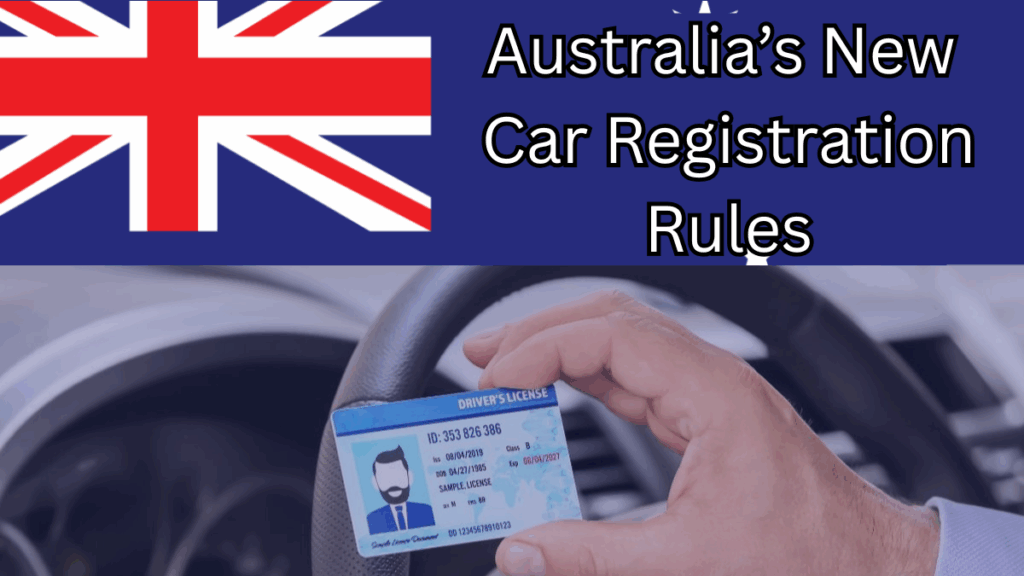Big changes are coming for drivers in New South Wales (NSW) and Victoria (VIC) in 2025. Whether you’re planning to buy a new vehicle or already own one, it’s essential to stay updated on the latest Australia Car Registration Policy changes. These new rules aim to improve road safety, environmental standards, and registration transparency.
Let’s break down what you need to know, especially if you live in NSW or VIC.

Table of Contents
What’s Changing in 2025?
The NSW VIC vehicle rules update coming into effect from January 2025 introduces several key reforms to car registration, vehicle inspections, and emission standards.
Key Changes to Look Out For:
-
Mandatory Digital Registration: Physical stickers will be phased out in favor of a fully digital system.
-
Annual Emissions Testing: Vehicles over 5 years old must now pass a yearly emissions test.
-
Inspection Policy Overhaul: All used vehicles must undergo a certified inspection before resale.
-
Uniform Fees Across States: NSW and VIC will align their registration fee structures.
-
Penalties for Delays: Late renewal penalties will increase, with stricter enforcement mechanisms.
At-a-Glance: NSW & VIC 2025 Vehicle Registration Rule Changes
Aspect |
Current Policy (2024) |
New Policy (2025) |
|---|---|---|
Registration Type |
Physical sticker + online option |
Fully digital (no physical stickers) |
Emissions Check |
Not mandatory in all cases |
Mandatory for vehicles older than 5 years |
Used Vehicle Resale |
Inspection not always required |
Mandatory certified inspection before resale |
Fee Structure |
State-specific fees |
Harmonized fees for NSW and VIC |
Penalty for Late Renewal |
Moderate fine |
Increased penalties and automatic reminders |
Why the Change?
The government is aiming to:
-
Modernize outdated systems using digital technology
-
Reduce carbon emissions across urban centers
-
Create consistency across state registration policies
-
Improve the buying/selling process for used vehicles
By standardizing rules under the updated Australia Car Registration Policy, both NSW and VIC are taking a step forward toward environmental responsibility and safer roads.
What This Means for Drivers
If you’re a driver in NSW or VIC, here’s what you should do:
Action Checklist for NSW & VIC Drivers:
-
Set up your digital registration profile via your state’s transport website
-
Schedule emissions testing if your vehicle is older than 5 years
-
Budget for new fee structures, especially if you own multiple vehicles
-
Book inspections before selling your used vehicle
-
Avoid penalties by renewing on time—set calendar alerts or reminders
These updates under the NSW VIC vehicle rules update aim to streamline vehicle management while improving accountability and reducing environmental impact.
FAQs
1. Do I still need a registration sticker on my car in 2025?
No. Starting in 2025, NSW and VIC will shift entirely to digital registration systems. You’ll no longer need physical stickers on your windshield.
2. What happens if I skip the new emissions test?
Your vehicle will be considered non-compliant, and you may face fines or have your registration suspended. Vehicles older than five years are required to pass an annual emissions test.
3. Will the registration cost go up?
Not necessarily. While fees are being standardized across NSW and VIC, some drivers might see minor increases or decreases depending on their previous rates.
4. How do I book the certified vehicle inspection for resale?
You can book inspections through authorized service centers listed on your state’s transport website. The inspection is mandatory before you can list your used vehicle for resale.
Final Thoughts
The 2025 Australia Car Registration Policy represents more than just administrative changes—it’s a significant move toward modernization, safety, and environmental accountability. If you’re a motorist in NSW or VIC, staying updated on the NSW VIC vehicle rules update will save you time, money, and unnecessary fines.
Click here to learn more




